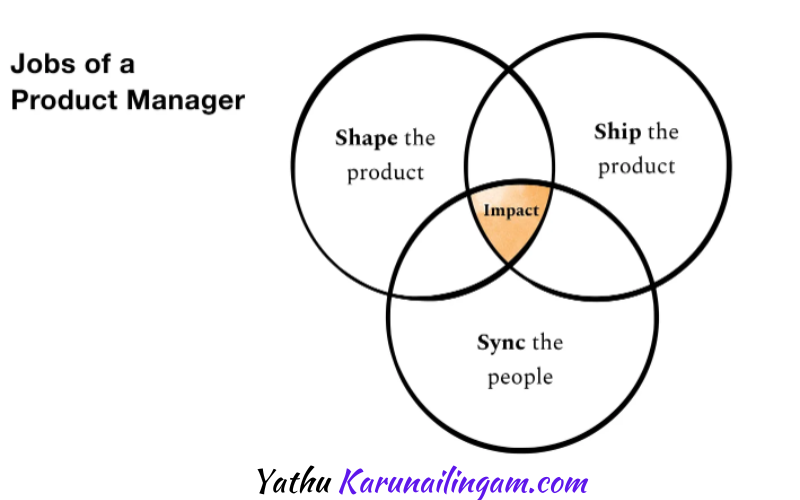- September 22, 2024
- by uyuwh
- Blog
- 0 Comments
The role of the product manager is becoming increasingly important in today’s fast-paced world. What is the role of a product manager? The question is often a source of curiosity for both newcomers and experienced professionals.
Product managers are unsung heroes who bridge gaps between teams and ensure that customers’ needs are met. They are able to navigate complex market requirements and guide their organization towards innovation and growth.
Product managers are crucial to the success of a product, whether they’re launching a brand new app or improving a service. So, let’s discover what is the role of a product manager in an organization and how it’s essential with Yathu Karunailingam.
Table of Contents
What is the Role of a Product Manager?
A product manager plays an important role in the lifecycle a product. They act as a bridge between different teams, including engineering, design, marketing and sales.
Determining the vision of the product is one key responsibility. Understanding market needs and aligning business goals with them is essential.
Product managers also prioritize features according to customer feedback and impact on business. They develop roadmaps to guide development and ensure that all stakeholders are informed.
Market research is another important aspect. They can identify innovation and improvement opportunities by analyzing trends and competitors.
Communication is key. Product managers must be able to communicate complex ideas to a variety of audiences, including developers and executives.
After the launch, they track performance metrics to determine success and inform future product iterations. Each of these responsibilities helps deliver value by creating products that are effective and resonate with users.
Key Qualifications and Skills of a Product Manager
A successful product manager has a skill set that combines both technical and soft skills. Communication is key, since they have to work with different teams, including marketing, engineering, and sales, in order to align everyone around the product vision.
Another important ability is analytical thinking. To make informed decisions, product managers must interpret data trends and feedback from users. Market research techniques help them to identify customer needs and growth opportunities.
Adaptability is also important in dealing with unexpected obstacles or changing priorities. It is important to embrace change and remain focused on your objectives.
A product manager’s ability to be effective can be greatly enhanced by a familiarity with project management methods. They can lead teams of cross-functional employees efficiently using Agile or Scrum frameworks.
The Challenges Faced by Product Managers
Product managers are often faced with a challenging landscape that is complex. Balancing expectations of stakeholders is one significant challenge. It can be difficult to align different teams, from engineering to marketing, towards a single goal when they have competing priorities.
The time constraints are also a challenge. Product managers often work to tight deadlines and must deliver high-quality results while meeting market demand.
Adapting to technology that is constantly changing can also be overwhelming. New tools and methods are constantly being developed, which requires constant learning and flexibility.
The competition in the market adds an additional layer of difficulty. To stay ahead, you need to be constantly innovative and watch your competitors.
It can be difficult to gather accurate feedback from users. Understanding the needs of customers is important, but managing surveys or sifting data takes away time from other tasks. These challenges test the adaptability and resilience of product managers every day.

Product Management Strategies for Success
A successful product management is a combination of strategic thinking with practical execution. A strong communication skill is a key strategy. Cross-functional teams can help bridge the gap between departments.
Prioritizing feedback from customers is another important way to improve products. Users can offer valuable insights to help improve products. A product manager must be able to fully understand the buyer personas as well as market trends.
Data analytics is also a key component of decision-making. By analyzing metrics, managers can adjust their strategies to reflect real-world performance instead of assumptions.
A team that is agile will be able to respond quickly to market changes or customer needs.
By regularly reviewing project goals, you can ensure alignment with the broader business objectives and keep everyone motivated to achieve shared success.
Four Key Responsibilities for Outstanding Product Managers
Product managers who excel excel in certain critical areas.
They are the link between teams. Communication skills are essential here, as they ensure that everyone from marketers to developers is on the same page with goals and expectations.
Then, they prioritise features based upon customer feedback and research. Analytical thinking and a keen understanding of user requirements are required. Product managers who excel at their job know how to balance the needs of users with what’s feasible.
They are responsible for driving the product vision. They create a roadmap outlining short-term and long-term objectives, while adapting the changes in the marketplace.
Outstanding product managers embrace data-driven decision-making. After a launch, they analyze metrics to evaluate performance and make quick improvements. They combine strategic insight with creativity, making them invaluable assets for any organization.
Product Management and Technology
The technology has changed the face of product management. Agile project management tools have improved team efficiency and collaboration by streamlining workflows.
Data analytics is a key component of decision-making. Now, product managers can use real-time data in order to better understand the behavior of customers and market trends. This information allows for better decisions to be made throughout the lifecycle of a product.
Automating repetitive tasks also frees up time to think strategically. AI-driven tools allow PMs to prioritize features according to user feedback, without being bogged down in manual processes.
Remote work has also expanded the talent pool globally. Teams can work together seamlessly from different locations and bring diverse perspectives to product development.
Machine learning, for example, is creating new possibilities for innovation. To ensure that their products are competitive in a constantly changing marketplace, product managers need to stay on top of these trends.
How Much Do Product Managers Make? Let’s Learn With YathuKarunailingam
Conclusion
Product managers are the backbone of any organization. They bridge gaps between different teams. They are able to identify market trends and customer needs, ensuring that their products meet not only the demands of customers but also go beyond expectations.
These professionals are innovators who prioritize features that add value. These professionals make data-driven decisions to guide product development and ensure resources are allocated efficiently.
A skilled product manager can also improve collaboration in teams. They create an environment that encourages communication between engineers and marketers as well as stakeholders.
Businesses that lack a strong product management department may find it difficult to compete in a market that is constantly changing. This role can improve customer satisfaction, which will lead to increased revenue.
FAQs
What is the role of a product manager plays in an organization?
The product manager is responsible for the success and development of a new product, from conception to launch. They are the link between departments such as marketing, engineering and sales.
What skills do I need to develop to become a Product Manager?
For aspiring product managers, strong communication skills, analytical thinking and project management experience, as well as an understanding of the market are essential. For cross-functional teams to work effectively, leadership qualities are essential.
What is the impact of technology on product managers’ work?
The technology has changed the way product managers work. Data analytics tools help product managers make informed decisions on the basis of market and user feedback. Collaboration software improves team coordination in remote locations.
What are the challenges that product managers face?
Product managers are often faced with competing stakeholder interests, changing priorities and tight deadlines. It can be difficult to balance these demands and ensure that products meet the needs of customers.
What makes a product manager outstanding?
Product managers who excel are not only technically savvy, but also emotionally intelligent. They understand the dynamics of their teams and the perspectives of users. They are able to adapt to changes while maintaining a strategic vision.
What are the essential skills for a career in product management that require effective communication?
Communication is key to ensuring everyone understands the project’s goals. Communication improves collaboration between teams and allows for more clarity in presentations or meetings.





